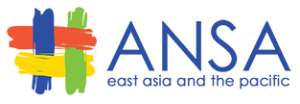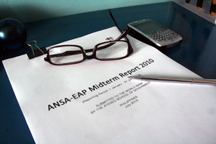Following is the Executive Summary of the ANSA-EAP 2010 Midterm Report that the Ateneo School of Government, which hosts ANSA-EAP, submitted to the World Bank in July 2010. The report covers the period 1 January to 31 June 2010:
- On January 2010, the Ateneo de Manila University – School of Government and the International Bank for Reconstruction and Development (The Bank) entered into a grant agreement for support to the third year of operations of the Affiliated Network for Social Accountability in East Asia and the Pacific (ANSA-EAP). The Grant is made from the Bank’s FY2010 Development Grant Facility (DGF) Window 2, with the amount of one million two hundred thousand United States dollars (US$ 1.2 million).
- This Midterm Report uses the Grant Agreement and the ANSA-EAP 2010 Deliverables as its main reference documents. The report covers the period from 1 January to 31 June 2010.
- The Grant Agreement has four main objectives: (1) the operationalization of ANSA-EAP; (2) country and multi-country social accountability initiatives and programs; (3) training and skills building in the region; and, (4) research and knowledge management activities at country/regional levels. Based on these objectives, the ANSA-EAP Secretariat formulated the 2010 Deliverables, which are categorized into the following components: (1) Governance and Management; (2) Capacity Building; (3) Communication; (4) Networking; (5) Research; and, (6) Resource Mobilization.
- On objective 1, ANSA-EAP in the first six months of its third year of operations accomplished the strengthening of internal management mechanisms. The Secretariat/Operations Team held assessment and planning sessions during which issues on the Network’s sustainability were taken up. An external consultant reviewed and assessed the Monitoring and Evaluation Framework. The first meeting of the six-member Executive Committee was held, wherein decisions on the next phase and legal registration of ANSA-EAP were reached.
- On objective 2, more country and multi-country initiatives and programs were initiated and existing ones have been continued to sustain the process of mainstreaming social accountability. A regional procurement agenda, featuring national procurement networks in the four priority countries, was crafted following the success of Open Doors 2009. A regional workshop on mainstreaming social accountability in the extractive industries was held, where participants identified key result areas for capacity building for the SAc in EI Network.
- On objective 3, the project expands its work as a capacity building provider in the area of good governance and social accountability through learning and training linkups with citizen group partners, established institutions, donor agencies and educational institutions. ANSA-EAP’s learning engagement with Oxfam Great Britain-East Asia, which aimed to mainstream social accountability into the latter’s regional change strategy, consisted of face-to-face and online learning exchanges, and a research study. The Scouts’ SAc Module, rolled out in partnership with the Ten Outstanding Boy Scouts of the Philippines, was awarded for Best Intellectual Initiative in an international scouts gathering in the United Arab Emirates.
- ANSA-EAP has identified partnering with higher educational institutions as a key mainstreaming strategy. In the Philippines, the Association of Public Administration Schools in the Philippines (ASPAP) was tapped to develop several modules integrating SAc into existing public administration courses.
- On objective 4, knowledge materials were produced and consolidated for use in training and public dissemination. At the heart of this is the articulation of the 3Ts (Tales-Tools-Techniques) Framework for capturing social accountability experiences.
- An emerging ICT agenda also marks ANSA-EAP’s innovative approaches in mainstreaming social accountability. The online SAc 101 learning platform has pushed forward the Network’s handholding activities by making distance learning possible for partners from various countries in the region. The Check My School initiative makes use of Google Maps technology and mobile phone messaging to facilitate citizens’ monitoring of public education services in the Philippines.
- In sum, completion of the four main objectives set out in the Grant Agreement is on track.
- Total budget expenditure for 2010 funds is at 21.09%. Expenditure for 2010 operations for the first few months of the fiscal year was charged to Year 2 funds because of a delay in the transmission of Year 3 funds.

